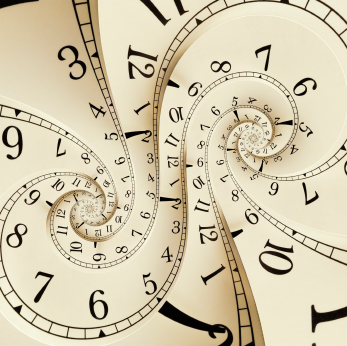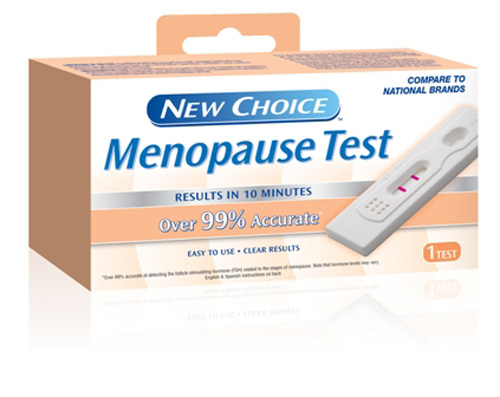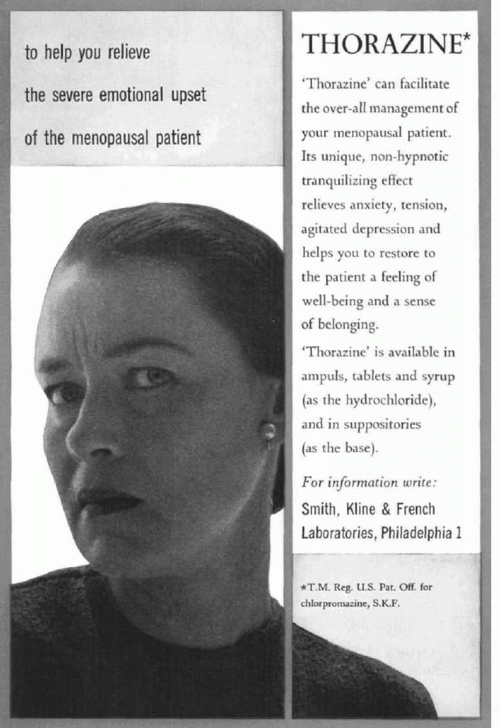Menopausal Symptoms? It’s Elementary!
Can you predict what perimenopause may be like? Believe it or not, it appears that certain past events throughout a woman’s reproductive life have more value than meets the eye. In fact, using questionnaire data collected from 290 peri- and postmenopausal women, researchers believe that they have found certain clues. For example, women who reported more severe physical symptoms during perimenopause experienced more severe physical symptoms during other times that their hormones were fluctuating:
- just before their menstrual period
- during pregnancy
- directly after giving birth
- during oral contraceptive use
The best predictors of menopausal pain and discomfort — achy muscles or joints, neck or head pain, lack of stamina, fatigue, low back ache, lack of concentration, bloating? The PMS experience! PMS with pain, lack of concentration and bloating appear to be the linked to the worst physical symptoms around the menopausal transition. And what about hot flashes and night sweats? It appears that most PMS symptoms (e.g. water retention, negative mood, concentration, cramps), fatigue, heartburn, headaches, backaches and hemorroids during the postpartum period, and physical effects of oral contraceptive use (e.g.headaches, bloating, tender breasts, nausea, aches, pains, cramps) are a harbinger of the worst vasomotor symptoms during perimenopause.
It’s important to keep in mind that other factors come into play during menopause, such as overall health, stress and attitudes towards aging. And as I’ve written time and again, all of these factors can influence the menopause experience. Past reproductive experience appears to account for up to 40% of how badly perimenopause may play out. Meanwhile, think back on your reproductive history. And start preparing now to deal with bothersome symptoms as they arise. It really is elementary!
(This study appears in the online edition of Menopause.)
Read More
Marking the ‘pause
 Back in 2009 and 2010, I wrote about a marker for menopause — the antimüllerian hormone (AMH) — which theoretically can accurately predict when a woman will enter menopause within a margin of three to four years. AMH is first detected in the ovarian cells when a woman is 36 weeks pregnant and continues until preimenopause. More specifically, it correlates to immature follicles in the ovaries whose role it is to house mature eggs. The greater the number of these follicles, the more likely it is that a woman will conceive. This is why AMH disappears as a women enters menopause, and why it has been identified as a marker of ovarian aging. Researchers have also discovered that women who have AMH levels that are below average for their age are likely to enter menopause up to 10 years before the average age of most women, 52 years. The importance of this cannot be overstated; one of the goals of this blog is to help you prepare for menopause and the changes that accompanying it. Hence, being able to predict when menopause may start can help you address certain potential health issues related to declining estrogen before they become full blown, e.g., elevated cholesterol.
Back in 2009 and 2010, I wrote about a marker for menopause — the antimüllerian hormone (AMH) — which theoretically can accurately predict when a woman will enter menopause within a margin of three to four years. AMH is first detected in the ovarian cells when a woman is 36 weeks pregnant and continues until preimenopause. More specifically, it correlates to immature follicles in the ovaries whose role it is to house mature eggs. The greater the number of these follicles, the more likely it is that a woman will conceive. This is why AMH disappears as a women enters menopause, and why it has been identified as a marker of ovarian aging. Researchers have also discovered that women who have AMH levels that are below average for their age are likely to enter menopause up to 10 years before the average age of most women, 52 years. The importance of this cannot be overstated; one of the goals of this blog is to help you prepare for menopause and the changes that accompanying it. Hence, being able to predict when menopause may start can help you address certain potential health issues related to declining estrogen before they become full blown, e.g., elevated cholesterol.
The powers that be have recently defined two phases of the menopause transition; the early phase, in which menstruation becomes more variable and cycle length changes by 7 days or more, and the late phase, in which women miss two or more periods, experiencing at least one 60 day cycle and have elevated FSH hormone levels. These phases became the anchor for the AMH study because they allowed the researchers to weigh its potential as a marker over time. That’s exactly what they set out to do (you can find the study published in the latest issue of Menopause.)
Using a new assay testing kit that appears to be more sensitive than its predecessors, they selected 44 women from a pool of 595 whose blood samples were taken randomly over a six year period and measured AMH. It was important that these women met criteria that would allow their AMH to be accurately measured; these included being over age 40 and menstruating regularly when they first had blood drawn, or having regular then irregular periods, not taking any medication that might affect their menstrual cycles and providing ample number of samples (at least three) over a five year time period.
The findings? Roughly three years before women entered what is considered the late stage menopausal transition, AMH blood levels became virtually undetectable. Moreover, the proportion of women with undetectable AMH levels constantly increased, which supports the hypothesis that AMH levels below a certain point may predict progression into the late phase of the menopausal transition. Similarly, over the time course of the study, the percentage of women with low AMH levels increased by about 71% as they approached the late menopausal transition.
The numbers in the study were small so the results, while important, stil need to be borne out in larger sample sizes. But, it appears promising that AMH can detect menopause within three years, a healthy dose of reality that may ultimately prove important in disease prevention as we age.
Read MoreWednesday Bubble: Test me this
In case those hot flashes, night sweats, drastic mood swings, aches, pains and forgetfulness have you confused, the manufacturers of First Response pregnancy test are here to help.
Wait, what? Pregnancy?
No, not pregnancy. Menopause!!!
That’s right, ladies, to be certain that your FSH levels are [cue music] menopausal, the New Choice™ Menopause Test is here!!! This nifty “99%” accurate test will allow you to start monitoring your hormone levels as soon as those perimenopausal symptoms start to hit. But here’s the rub. While a prolonged increase in FSH levels can indicate a diminished ovarian reserve and therefore, the beginning of the menopausal transition, hormone levels do and can fluctuate. Moreover, in some women, FSH can return to normal and then perhaps increase over a number of months. What this means is that FSH measurements are hardly foolproof OR proof that menopause is starting.
Because hormone levels tend to fluctuate, most practitioners will recommend monthly tests, or should I say, monthly BLOOD tests. Urine test findings may correlate with blood testing but if blood testing is the norm and are hardly accurate, one has to question the accuracy of urine tests. If it looks like a rat and smells like a rat, well…
Menopause home testing will cost you about $6.50 a month or $78 a year. If I were you, I’d save your money and schedule a visit to your health practitioner. That visit, along with a year of no menstrual periods, brings the accuracy levels a lot closer to 100%.
Read More
Monday Musings: The More Things Change
The Scream. Edvard Munch 1895.
The ‘Change.’ A time for ‘hysteria.’
I kid you not.
All joking aside, if you trace the history of the menopause, it has long been associated with loss, decline and decay, something is abhorred and shunned in society. And as I wrote earlier this year, in “response, marketers and the media have perpetuated and pathologized what author Louise Foxcroft (in her book, ‘Hot Flushes, Cold Science’) refers to as “one more feature in a woman’s linear life history, an inevitable and natural phenomenon, one more thing to negotiate and nowhere near as astonishing or potentially problematic as pregnancy.”
Even the British Medical Journal has been in the game, publishing a piece in 1937 that highlights how profound an impact the ‘Change’ can have a woman’s ability to function:
“Practically every menopausal woman becomes aware of certain mental clumsiness, an inability to cope with the ordinary problems of daily life, and a tendency to “give in.” The realization of her shortcomings is worrying, and she readily becomes depressed. Emotional instability is well defined, and the patient reacts to trivial situations with rather surprising attacks of laughter or tears. She is subject to rapid and frequent changes of mood: at one moment she will be unbearably irritable, at the next, pathetically contrite. There may be marked changes in personality and severe attacks of mental depression, sometimes lasting for days, during which the patient may become suicidal. A condition of hypochondriasis, which is particularly distressing to those around her, may develop out of the complicated syndrome, even in the milder cases, and persist for the remainder of the patient’s life.”
No wonder pharmaceutical manufacturers started pushing thorazine and benzadrine.
If wandering around in a drugged out state doesn’t calm you down or pep you up, the general 1937 approach might. In fact, I am of the mindset that modern medicine may need to take a page from 1927 clinician Dr. PMF Bishop:
“Assistance can be rendered by the members of the patient’s household. Her husband and relatives should be told that she is passing through a difficult phase of life and that they should therefore be tolerant and sympathetic in their dealings with her. She should be shielded as much as possible from domestic worries, and sometimes a holiday away from her household duties is beneficial, thought i may be harmful if she is a woman of forceful personality who will worry over the conduct of her home in her absence. She should be encouraged to pursue any hobby which will prevent her from becoming introspective about her condition. She may suffer from a secret fear that her symptoms are due to cancer, and it is wise for her doctor to reassure her specifically on this point.”
So, what is the point of my Monday musing? Menopause is still viewed as an hysterical condition in many circles. The trouble is, the recommended solution is HRT (mind you, even Dr. Bishop writes about estrogen replacement) and rarely do practitioners recommend that the woman simply take a long holiday away from the stressors of her mind and body. Relaxation can help; I’ve shown you the data on Flashfree time and again.
Just think if someone could put THAT in a bottle.
Read More
Menophrenia
Back in the Fifties, they used to treat menopause the way that they treated schizophrenia — with Thorazine. Evidently, the medical community also used Thorazine to treat nausea and vomiting, ‘senile agitation,’ and acute alcoholism. In other words, it was a psychiatric wonderdrug, creating zombie-like hormonal women, senile men and nauseated children across the U.S.
But back to women….I can only wonder why, at the time, no one thought to coin the term ‘menophrenia,’ i.e. emotional upset of the menopausal patient?
Welcome to the dark side of menopause and vintage advertising. Creating zombiepausal women everywhere!
Read More
Shmirshky? A guest post by author Ellen Dolgen
Do you recall when I wrote about Shmirshky and took a mick out of the book? If not, this little excerpt might stir your memory…
Truly, when I first laid eyes on Shmirshky.com, I wanted to hate it. Why? Because I don’t like cutesy names for vaginas like “shmirshky.” And I don’t really understand the tagline or book title – ‘think inside the box’ or ’pursuit of hormone happiness’. Nor do I care for abbreviations like “PM and M” (i.e. perimenopause and menopause) or “SUMO,” the author “E’s” (read: everyone) imaginary friend who makes her feel bad about herself….
Well, here I am, a year and a half later, running a guest post by the book’s author, Ellen Dolgen, who I had the pleasure of meeting in New York last month. When I met Ellen, I asked her about the derivation of shmirsky. This is why I’m eating crow today. Ellen is an incredible woman and this story, well, it’s damn special.
Shmirshky. Yup. We should all be so lucky.
Show some love. And Happy Birthday Ellen!
I love a gal who says what’s on her mind. When I read Liz’s review of my book, it made me smile.
I was definitely brought up calling my vagina a vagina, but I can’t really remember using the word vagina in a sentence until I was well into adulthood. As Eve Ensler puts it in her famous Vagina Monologues:
“Let’s just start with the word ‘vagina.’ It sounds like an infection at best, maybe a medical instrument: ‘Hurry nurse, bring me the vagina.’ ‘Vagina.’ ‘Vagina.’ Doesn’t matter how many times you say it, it never sounds like a word you want to say. It’s a totally ridiculous, completely unsexy word. If you use it during sex, trying to be politically correct – ‘Darling, could you stroke my vagina?’ – you kill the act right there.”
Still, I love my vagina. I love being a woman, and I was angry when I found I was totally unprepared for and uneducated about perimenopause and menopause. I decided to do something to prevent other women from suffering like I did. My book is a cut to the chase, conversation opener that women can read, discuss, and pass along to their friends and family.
Since Liz, in her review of my book, was most troubled by my use of the word “shmirshky” instead of “vagina,” let’s get that off the table right off the bat! I had a very special mentor in my life. Her name was Marcia. She used to call the vagina, shmirshky. The penis, erlick. I thought it was hilarious. She would be going on and on about shmirshkies and erlicks, and those seated next to us in a restaurant thought she was talking about a new restaurant or perhaps even a law firm. Marcia was vivacious, smart, and endlessly loving. In 2002, at the age of 72, she was diagnosed with cancer. Toward the end of her illness, she was at home with amazing Hospice care, and it was her birthday. I wasn’t sure if we should celebrate or not mention it since I knew this would be her last birthday.
I will never forget that October day. We arrived at Marcia’s condo with balloons, a cake, and presents. She was wheeled into her living room – and immediately she beamed! For her gift, I had paid off a shawl she had on layaway at her favorite consignment store, and she squealed with excitement when she saw it, wrapping the shawl around herself. Just for a moment, we all forgot that Marcia’s days were ending. With joy in her eyes, she left me one last monumental pearl of wisdom: make every day your birthday. So, in honor of my
BFF (birthday friend forever), I decided to call my book about vaginas – Shmirshky!
Alone and unprepared when my menopausal journey began, I drew on Marcia’s spirit and wisdom. My intro to perimenopause was sudden and fierce: my memory disintegrated, my emotions were out of control, I couldn’t sleep, I became a member of the sisterhood of the shrinking pants, and my vagina took a trip to the Sahara desert. I felt like an alien had taken over my body. After years of struggling, I began journaling about my experiences as a way to escape from all the loneliness and confusion. I also hoped my journal could be a guide to perimenopause and menopause I would give to my daughter that she could use when she got older. When I started looking for answers, I visited my local bookstore and left with 10 books on menopause. For weeks, I buried myself in these books trying to absorb the information within them. Everything I found was way too clinical and better at inducing sleep than at teaching me what I needed to know to get the help I needed. I realized the book I wanted to read did not exist, so I decided to write it myself. I carefully researched and interviewed other women, pharmacists, and specialists. Eventually, a book emerged that was truly new and distinct from anything else I had seen. In addition to providing the information a woman needs to begin her journey through perimenopause, I felt, and still feel, that my book opens the conversation in a way that is fun, positive, accessible, and empowering. It’s a girlfriend’s guide chalk full of useful tools – just enough detail and written with compassion, empathy, and – the most important element – humor.
My mission since publishing Shmirshky is to empower women to get the help they need and deserve. I share my own story in the hopes that others feel comfortable breaking the taboo surrounding perimenopause and menopause, so we can build support networks for ourselves, our daughters, our friends, anyone who has or knows someone who has a Shmirshky. Don’t like that word? Then, call it your vagina, call it your box, your beaver, your ya-ya. Whatever you call it, we all need to reach out and speak out, using whatever language feels comfortable, to connect, unite, and empower the sisterhood!
My motto is: Reaching out is IN! Suffering silence is OUT!
Happy Birthday Liz!
About Ellen Dolgen…
Ellen Dolgen is a Health and Wellness Advocate, Menopause Awareness Expert, Author, Speaker, and health blogger.
Ellen is the author of Shmirshky: The Pursuit of Hormone Happiness — a cut-to-the-chase book on perimenopause and menopause that’s filled with crucial information, helpful guides, and hilarious and heartfelt stories. Known for her humor, compassion, and sassy personality, Ellen has appeared on numerous television and radio broadcasts, including: the Rachael Ray Show, The Doctors, Oprah Radio, Playboy Radio, “Tell Me More” on NPR, Doctor Radio, and dozens of other regional and national media outlets. Ellen is a frequent guest on the popular radio show, “Broadminded,” on Sirius XM Radio (Stars XM 107) and is a regular contributor on Huff/Post 50 along with blogging for many leading women’s health sites. Ellen has dedicated herself to women’s wellness through a wide breadth of activities ranging from being a founding board member of the UCSD Student Wellness Center, working with pharmaceutical companies in helping them to effectively address women’s health needs, serving on hospital advisory boards, and advocating for cardiovascular health.
Read More












